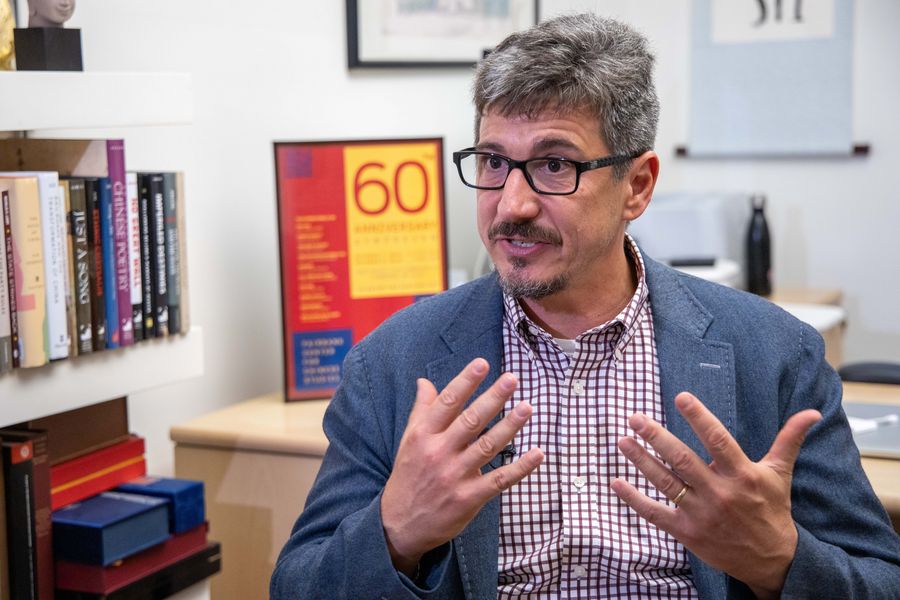Co-opetition should define a healthy China-U.S. relationship in the longer run, says a China expert from Harvard University.
by Miao Xiaojuan
BOSTON, the United States, Nov. 2 (Xinhua) -- China-U.S. relations must involve more competition and cooperation in the longer run, said Prof. Michael Szonyi, director of Harvard University's Fairbank Center for Chinese Studies.
The world's two largest economies have to coexist, because the alternative would be "unthinkable," he told Xinhua in a recent interview, through which he voiced cautious optimism.
Like many China experts in the United States, he said he believes the so-called "China-U.S. decoupling" is neither rational nor possible.
The rise of China has benefited the United States, Szonyi said.
"If you look at any American home, you will see the accessibility of cheaper electronics from China. It made life better for Americans," he said.
But most Americans do not necessarily understand the transformation of China, he pointed out, while recalling his months-long stay with a family of five in China's Fujian province in the 1990s.
"It's easy to forget how much progress China has made. I have only to look at the photographs of my trip to realize the extraordinary accomplishments of the Chinese people," said the Canadian historian who once studied and did fieldwork in multiple cities and the vast countryside of China.

Michael Szonyi, a Canadian historian at Harvard, speaks in an interview with Xinhua at Harvard University, Massachusetts, the United States, Oct. 8, 2019. (Xinhua/Xie E)
In his opinion, the most decisive strength of the Communist Party of China has been its flexibility in dealing with new challenges.
"What struck me is that, each time when China has moved into a new phase and we thought the Party could not possibly continue to manage the situation, it has managed the situation effectively," he said.
Amid rising tensions over trade, technology and values, China-U.S. relations have hit a rough patch. One issue for the bilateral relationship, according to Szonyi, is lack of coherence on the U.S. side.
"Partly due to the nature of the current administration, and partly due to the complexity of the relationship ... I don't know what the White House is thinking now," he added.
It is no coincidence that, in recent years, the Fairbank Center has started to focus on "China in the world" as well as public outreach.
"If you want to understand China today, you need to understand China in a global context. And it's very important that the American public and policymakers have good information about China," he explained.
He said he remains optimistic about bilateral relations because of the economic upside of engaging with China, the need for the United States to assume its global responsibilities, such as dealing with climate change, and the large number of young Chinese students in the country.
Misguided policies toward Chinese students are "a terrible mistake," he added. "Being a magnet for global talent is one of the great strengths of America. Limiting that comparative advantage is a real shoot-yourself-in-the-foot."
In 1979, a batch of 52 Chinese students went to the United States. Today, there are over 360,000 students from the Chinese mainland studying in the United States, making up one third of all international students and contributing tens of billions of dollars to the U.S. economy.
Taking a long view, co-opetition should define China-U.S. relations, said Szonyi.
"A healthy relationship will find the areas where cooperation makes the most sense and cooperate, and will find the areas where competition makes the most sense and compete," he said. (Xinhua reporters Guo Peiran and Xie E in Boston also contributed to the story.) ■



